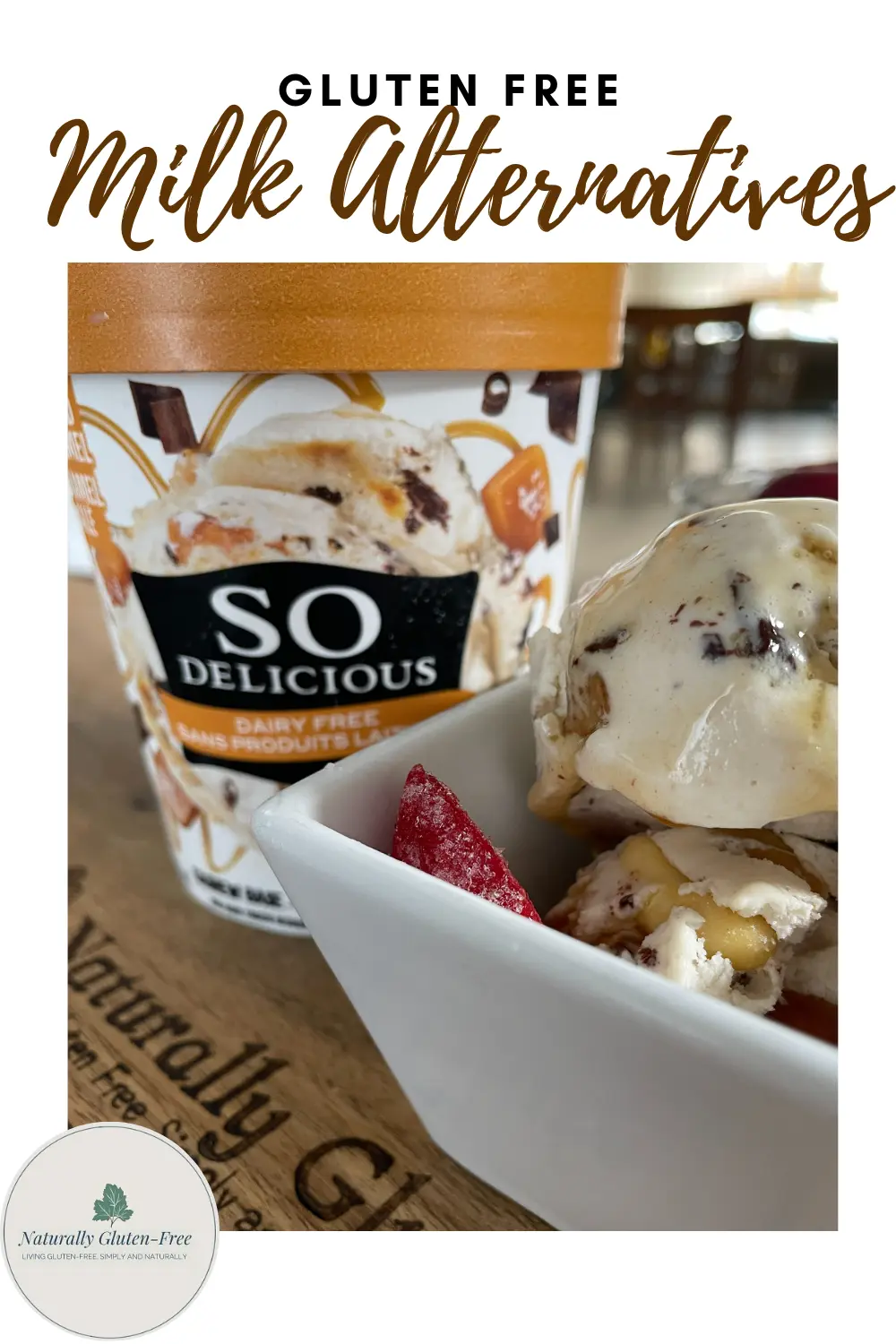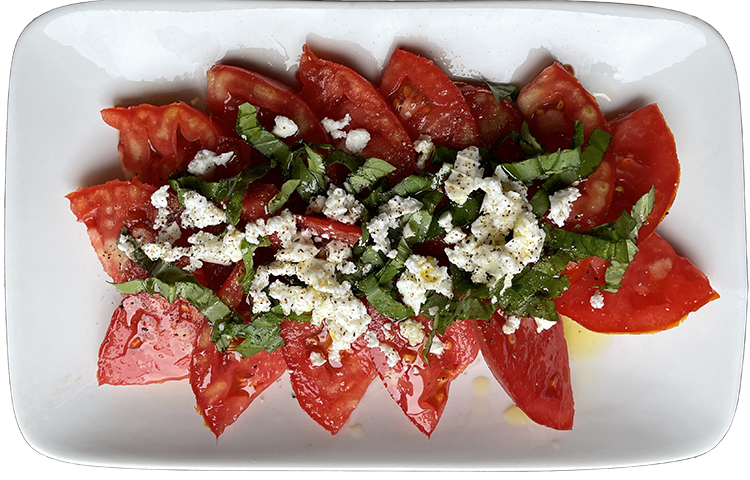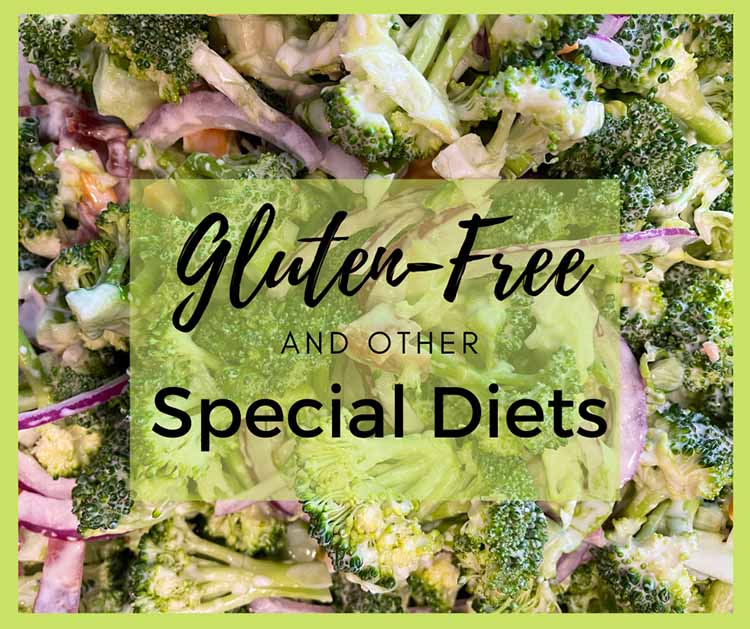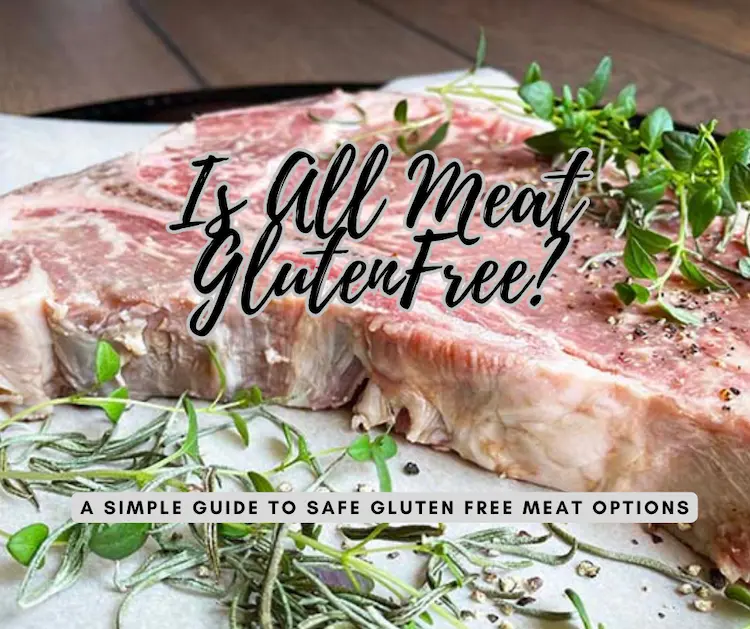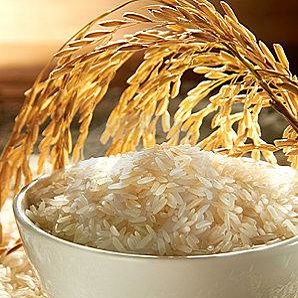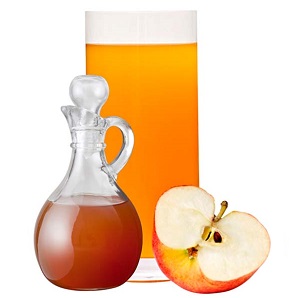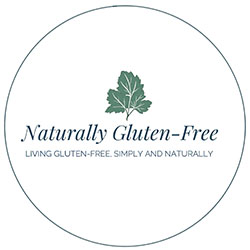- Home
- Intolerances and Special Diets
- Gluten Free Milk Alternatives
Your Complete Guide to the Best Gluten Free Milk Alternatives
Many people with celiac disease face the dual challenge of needing to avoid dairy as well as gluten. But you don't have to sacrifice taste or nutrition. This complete guide to gluten free milk alternatives has everything you need to choose the best dairy and gluten free milk options for you.
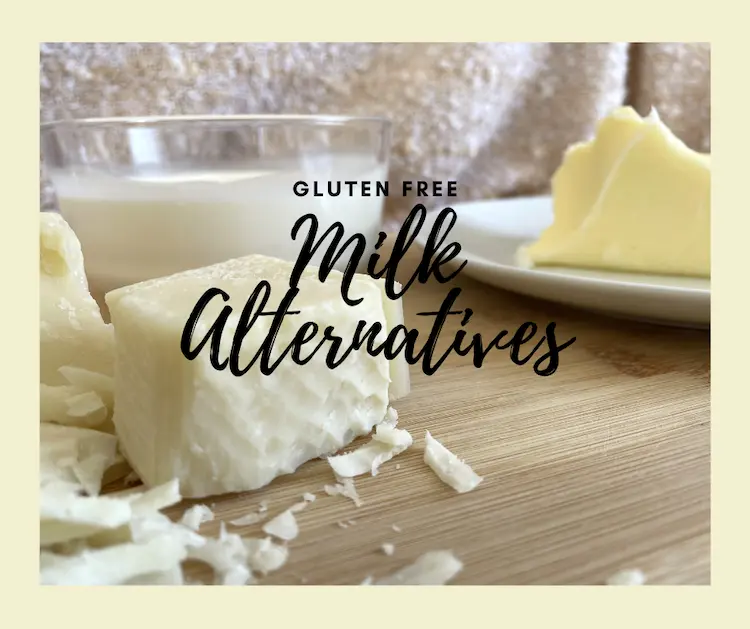
You can read through the whole article, or jump to the section that interests you most.
Why Consider Milk Alternatives?
Regular milk from your grocer's dairy case is naturally gluten free.
So is butter, cheese, cream, yogurt and ice cream. This makes dairy products a safe and nutritious choice for your gluten free diet. Read labels of course to ensure there is nothing unexpected.
So, why look for gluten free milk alternatives? Here are a few reasons:
- Lactose intolerance
- Casein intolerance
- Other issues with dairy products
- You prefer a plant based diet
Celiac and Dairy Intolerance
If you have celiac disease, it's very possible that you are also lactose intolerant. Celiac disease and lactose intolerance go hand in hand, especially in the first few months after diagnosis.
If you've tried lactose free dairy products and still have tummy troubles, then your problem might be casein, which is the protein in milk.
In this article, I'll offer you lots of gluten free milk alternatives that will work for both lactose and casein issues. Keep in mind though that the nutrients in milk may be different than in these replacements, so be sure to get enough calcium and vitamins A, D and B complex.
Pin for Later
Lactose Free Cow's Milk
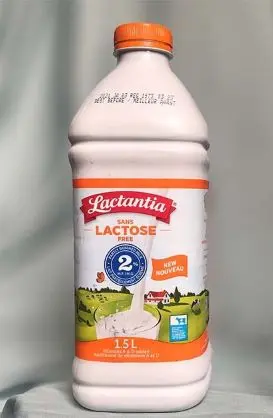
Lactose free cow's milk is an excellent alternative for anyone who is lactose intolerant.
You'll find it in your grocer's dairy case and you can use it exactly as you would use regular milk.
You may find lactose free milk tastes a bit sweeter than regular milk. This is because an enzyme is added to break down the lactose and convert it to sucrose.
Sucrose is easier to digest and tastes sweeter than lactose.
Milk from Other Animals
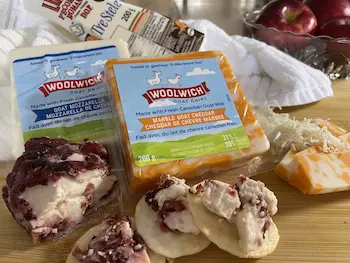
Cows are not the only animal that we get milk from. All mammals produce milk. We humans tend to rely on the hoofed ones like goats, sheep and even water buffalo.
The milk from these other mammals contains lactose but may be less than cows milk. What's more important is the type of casein in these alternative milks. It is different and often better tolerated than the casein in cow's milk.1
Finding the Best Gluten and Dairy Free Milk Options
Do you like milk on your cereal or a tall cold glass of milk? Are you looking for a milk alternative to use in cooking? What about cheese, yogurt and ice cream? There are so many choices, it can get a bit confusing.
Finding the best gluten free milk alternative depends on what you're looking for, what you like and what's available.
I've included a few links for your convenience.
As an Amazon associate I may make a small commission from products purchased at no additional cost to you.
I did not receive a free samples and I was not asked to review these products unless specified. I've included each product because I've used it myself. I would not recommend anything that I would not use.
Plant Based Milk Alternatives
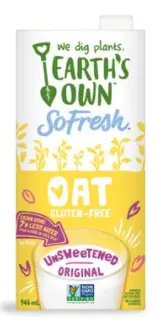
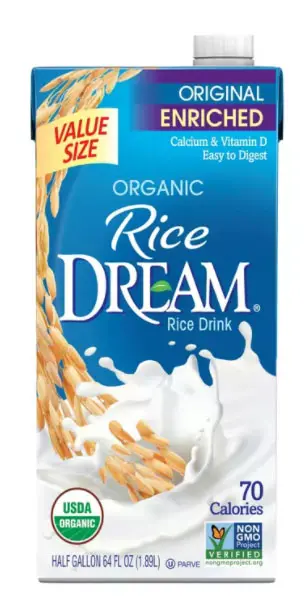
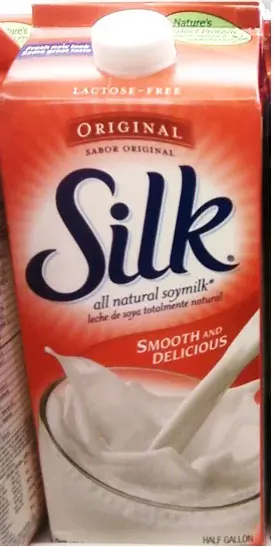
This is where things can get a bit overwhelming. There are so many options that it's hard to know what to go with.
My advice is to try them and see what you like.
You may notice the absence of the word "milk" on the label. Some jurisdictions don't allow non-dairy products to be labelled as milk, so you may see "beverage" or "drink" instead.
Watch for sugar content in these plant based milks. It's up to you and your dietary needs of course, but if you're trying to keep your sugar intake under control then opt for unsweetened versions.
Nut Based Milk Alternatives
Making milk substitutes from nuts like almonds or cashews is popular and these beverages taste great and work well in recipes or on your cereal.
Almond and Cashew Milk Dairy Substitutes
Almonds are an excellent source of vitamin E, magnesium, riboflavin, as well as fiber and phosphorus.2 Almond milk is also keto friendly if you get the unsweetened version.
Cashew milk is popular and tasty but is not keto friendly. This is because cashews are legumes not nuts. Therefore they are too high in carbs to be keto friendly.
Coconut Milk Dairy Substitute
I've separated coconut milk out from the other nut milks because it is a bit of a special case. As a staple in Asian and Caribbean cuisines, you'll find coconut milk in recipes for Thai curry, Indian curries and Jamaican rice and peas.
You can buy coconut milk in cartons like other plant based milks. This is what you'll use as a milk substitute to drink or put on your cereal. Canned coconut milk is thicker and creamier and works well in place of cream.
Unsweetened coconut milk is low in carbohydrates so is keto friendly.
Dairy Free and Nut Free Milk Alternatives
If you are allergic to nuts, there are several nut free milk alternatives. The most common are rice, oat and soy milks.
Rice Milk Dairy Substitute
To make rice milk, manufacturers blend cooked rice with water and strain it though very fine cheese cloth. You can even make it at home.
Rice is naturally gluten free so rice milk makes a good gluten free dairy substitution.
Is rice milk good? Sure, it's fine. My personal opinion is that rice milks are a bit watery so it's not my first choice.
If you'd like to try a good quality rice milk, I've used this one.
Oat Milk Dairy Substitute
Oats, like rice are a gluten free grain, but be careful. Oats are often grown and processed alongside wheat so cross contamination is a problem. If you're going to eat oats, make sure to choose certified gluten free oats. The same goes for oat milk.
In recent years there has been worldwide shortage of certified gluten free oats. This meant many products were forced to remove their gluten free labels including some varieties of oat milk.3 Double check the label to be sure your oat milk is made with gluten free oats.
As a substitute for cows milk, oat milk is one of my favorites. I like the flavor and find the texture to be closer to cows milk than any of the others.
Earth's Own is the brand I use. If you'd like to try it, you can go through the link on the right.
Soy Milk Dairy Substitute
Soy milk is the most common dairy substitute and probably the first one that became widely available. It's made similarly to rice milk by blending soy beans with water and straining. Soy beans are gluten free and so is soy milk.
The consistency of soy milk is a similar to cows milk and it's likely the one you'll find at the coffee shop.
There is some controversy over soy milk as soy beans contain phytoestrogen, a type of plant estrogen which might increase the estrogen levels in your body. I've heard of some peri-menopausal women using soy milk and other soy products as a way of controlling symptoms of peri-menopause. If you're concerned about estrogen and soy milk, talk to your doctor or consider a different gluten free milk alternative.
Gluten Free Milk Alternatives for Your Coffee
Do you find that the plant based milks don't quite cut it for your coffee? I do. I like the richness of cream in my coffee and some of the dairy substitutes above are too thin and watery.
Here are some options to try:
Real Cream for Your Coffee
If you're lactose intolerant, you may find real cream is okay. The higher the fat content of cream means the lactose is lower. This makes it easier to digest for lactase deficient celiacs.
Plant Based Creams for Your Coffee
Canned Coconut Milk
Canned coconut milk is an option. It's thicker than other plant based milks. This gives you the color and richness that cream does in your coffee. It's also keto friendly. Coconut milk is not the perfect cream replacement though. I've found it sometimes floats to the top and gets an oily consistency, especially as my coffee cools.
Coffee Whiteners
There are several liquid and powdered coffee whiteners on the market. Although I'm not a fan of the ultra-processed ingredients, the advantage is that the powdered ones are especially convenient to travel with. Many coffee shops don't offer a non-dairy alternative or they only offer almond or soy milk. You may prefer to have your own powdered creamer in your purse or pocket.
Remember check the labels. Some of these products contain sodium caseinate which is made from milk. It may be okay if you're lactose intolerant, but if you have a casein allergy you should avoid it.
Gluten Free Milk Alternatives for Cooking and Baking

Any recipe that calls for milk will turn out fine if you sub in one of the gluten free milk alternatives above. The richer plant based milks like oat or soy work best because the texture is close to cows milk, but the others will work too.
If you use canned coconut milk in place of cows milk, you may want to thin it out with a bit of water.
Coconut milk also makes a good substitute for cream in gluten and dairy free cooking or baking. Creamy sauces can be made with coconut milk. In fact it's a staple in many Asian and Caribbean recipes.
If you need sour milk, add a tablespoon full of lemon juice to a cup of coconut milk and let it stand for about 10 minutes. I often use this method for my gluten free flourless cornbread.
Gluten Free Non-dairy Alternatives for Cheese
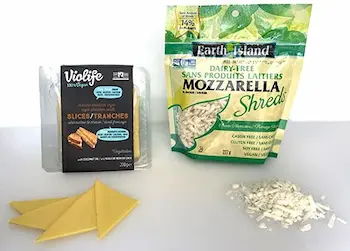
Hard cheeses are low in lactose but do contain casein.
There are many vegan cheese substitutes on the market:
- Vegan "cheese" slices are good on sandwiches
- Vegan "cheese" shreds work well on pizza or anywhere else you would use shredded cheese.
- Vegan cream "cheese" will work in dips and cheese cake.
- Nutritional yeast has a cheesy flavor. Mix with a little sea salt, garlic powder and ground nuts or seeds and sprinkle over your pasta or potato dish.
Most of these plant based cheese alternatives will be both gluten and dairy free but check the label to be sure.
Cheeses from Other Mammals
Keep an eye out for cheeses made from goat, sheep or buffalo milk. As mentioned above, these are often well tolerated by people who don't do well with cow's milk. I prefer these to plant based cheeses because the ingredient lists are shorter and contain fewer processed additives.
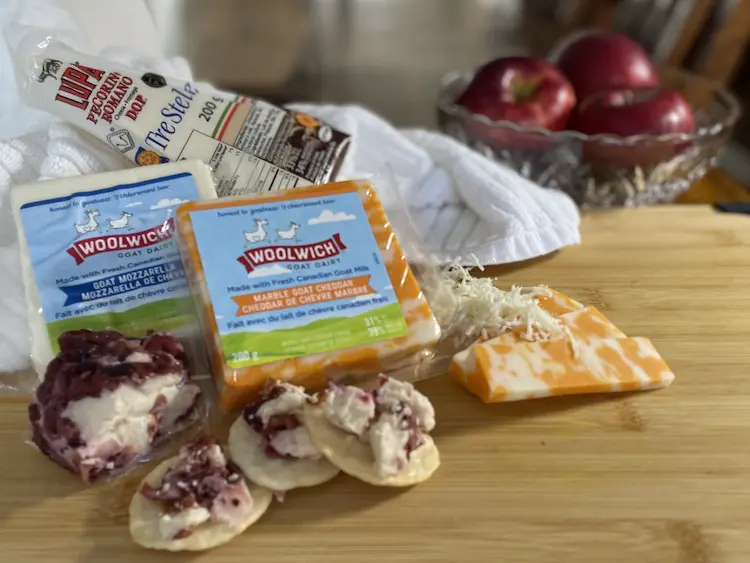
There are many delicious varieties available like:
Pecorino Romano is made from sheep's milk and is a robust, salty, delicious hard cheese. It makes a perfect substitute for parmesan on pasta.
Goat Cheddar is very similar in flavor and texture to cheddar made from cow's milk. It works on sandwiches, grated and baked on nachos or anywhere else you would use cheddar.
Goat Mozzarella is the same ooey, gooey melted wonder on pizza or lasagna as the cow's milk version.
Creamy Soft White Goat Cheese is likely what comes to mind when you think of goat cheese. Guess what, it's good for more than just crackers. Goat cheese adds amazing richness to mac and cheese and substitutes beautifully for ricotta in lasagna.
Feta Cheese is a briny, salty semi soft cheese originating from Greece. You'll find it atop your Greek salad but have you tried it on pizza, or in a gluten free wrap? Feta cheese is traditionally made from goat or sheep's milk but in modern times may be made from cow's milk. So check the label to be sure and ask your server if you're ordering in a restaurant.
You may be wondering where to buy these delicious and versatile cheeses. Here in Canada I've found a good variety of goat and sheep cheeses in Metro, Sobey's and Loblaw's stores. You can often find them in specialty stores, or you may be lucky enough to have a goat farm nearby.
Gluten Free Yogurt and Ice Cream
Yogurt is Naturally Gluten Free

Yogurt, like other dairy products is naturally gluten free. But yogurt often has flavorings added which may or may not be gluten free, so always check the label.
Yogurt has the lactobacillus bacteria which is a pro-biotic. It helps to break down lactose in milk products. So if you're lactose intolerant, you may be okay with yogurt and may not even need to look for a substitute.
Gluten Free Plant Based Yogurt
If regular yogurt upsets your tummy, look for coconut yogurt. It has the lactobacillus bacteria too giving you the probiotic benefits of regular yogurt.
Silk brand is one of the most popular and most available, but there are other brands too. Flavor and consistency vary so try a few and see what you like.
Gluten Free and Dairy Free Ice Cream
Good quality ice cream is likely to be gluten free but check the label to be sure. Some cheaper brands add thickeners and those thickeners may contain gluten. Also, be careful of the flavorings added to ice cream. Cookie pieces, chunks of brownie and other additions may not be gluten free.
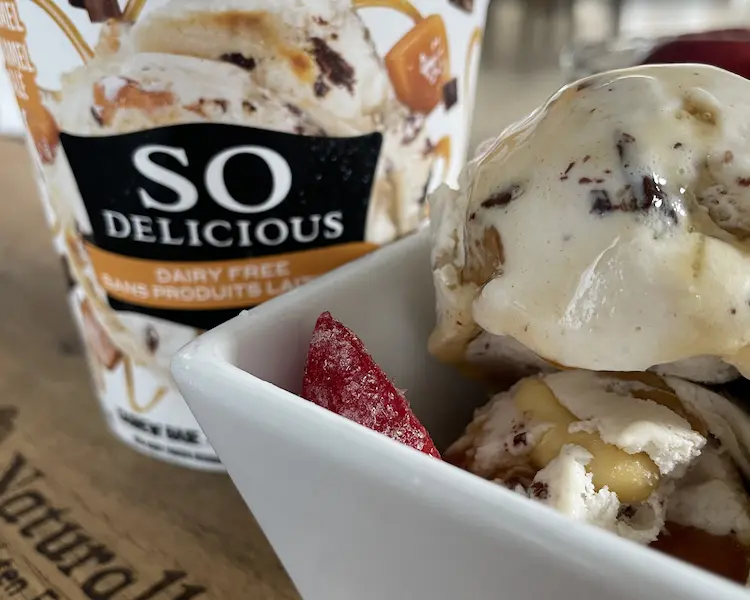
Choose Premium Ice Cream Brands for Lactose Intolerance
Premium brands of ice cream like Haagen Dazs or Chapman's use real cream. Cheaper brands often use milk or modified milk ingredients then add emulsifiers to create the creamy texture we look for in ice cream.
Why does this matter?
Real cream has a higher fat content than milk. Higher fat content means less lactose. All of this means that if you're lactose intolerant, you may be able to tolerate a small amount of premium ice cream. Is that a great excuse to go for the good stuff or what?
Plant Based Ice Cream
If regular ice cream doesn't work for you, look for coconut ice cream or ice cream made from other sources like cashews, soy or bananas. You can also have sorbet as there is no dairy.
Try making your own ice cream by blending up frozen bananas or strawberries with a little plant-based milk. It's delicious and very healthy!
Conclusion
Was that a lot or what?
Now do you feel like you have the information you need? Are you better equipped to find the best gluten free milk alternatives to meet your needs? From topping your breakfast cereal to dressing up your sandwich or satisfying that ice cream craving, you really can have it all.
Sources:
1. Michael Metzger, M. S. U. E. (2022, July 22). Goat milk versus cow milk: A comparison. Sheep & Goats. https://www.canr.msu.edu/news/goat-milk-versus-cow-milk-a-comparison#:~:text=Other%20health%20benefits%20that%20have,during%20processing%20of%20goat%20milk.
2. Leech, J. (2023, October 30). 9 evidence-based health benefits of almonds. Healthline. https://www.healthline.com/nutrition/9-proven-benefits-of-almonds
3. Nicholc. (2022, January 31). The shortage of gluten-free oats. GIG® Gluten Intolerance Group®. https://gluten.org/2022/01/31/the-shortage-of-gluten-free-oats/
Home > Intolerances and Special Diets
> Gluten-Free Milk Alternatives
